Technologies
iOS 17 Needs These Android 14 Features
Commentary: Apple is expected to announce the next iPhone OS at WWDC on Monday.
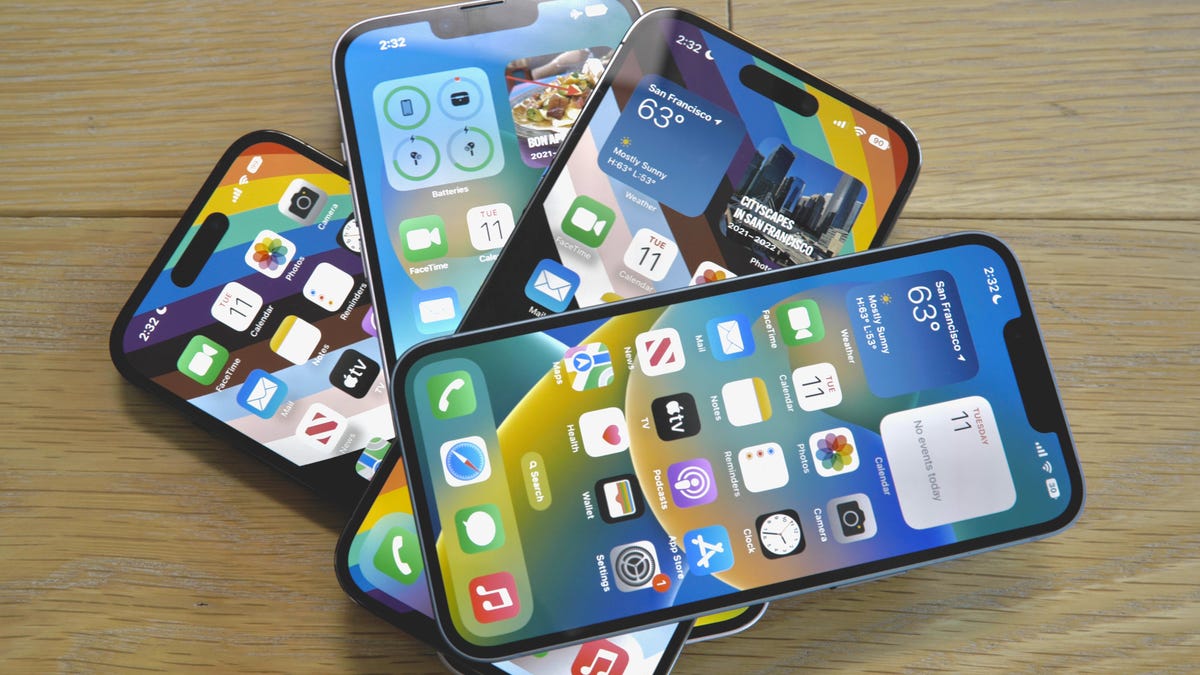
Apple’s Worldwide Developers Conference 2023 is set to begin next Monday, about a month after Google I/O 2023. Apple is expected to unveil iOS 17, the next version of its software for iPhones, at the event.
In the US, iPhones recently wrestled the crown away from Androids as the most popular smartphone, but this comes after more than a decade of Android dominance. And Android reigns in the global market, usually by wide margins. In South America, for example, Android represents about 88% of all smartphones, and iPhones trail with about 11%, according to the IT site SOS Support.
But for as long as Apple and Google have been fighting like Godzilla and King Kong for smartphone market superiority, they’ve also seemingly been stealing ideas from each other. For example, notification badges debuted on iPhones, and Androids had home screen widgets long before iPhones, as Popular Science notes.
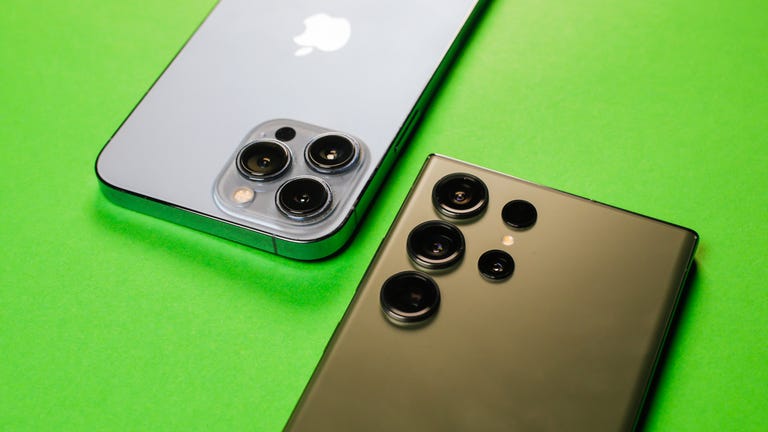
Apple and Android have seemingly been copying features from each other for years.
That back-and-forth continued with Android 14, as Android phones seemingly copied iPhones again with an updated Find My Device feature and added unknown tracker alerts. We don’t know what Apple has in store for iOS 17, but we think the company should incorporate some of the new Android features into the software.
Here are the new Android features I think Apple should include in iOS 17.
More lock screen customization options
Lock screen customization was one of the most substantial updates to land on iPhones when iOS 16 was released in September 2022. With iOS 17, I want to see Apple give iPhone users more customization options, like Google is doing with Android 14.
Android 14 will let users change the size and design of their lock screen’s clock — in addition to its font type and color — and the software lets users add shortcuts to their lock screen. Changing your lock screen clock is nice — you can already change the font and color of your iPhone’s lock screen clock — but I’d really like to see Apple add the ability to edit or add to the shortcuts on the lock screen.
I regularly use the flashlight shortcut, but I back-tap my iPhone to pull up the camera, so the camera shortcut doesn’t get used as much. Being able to change that shortcut to my Wallet app, or a search shortcut, would be great in iOS 17.
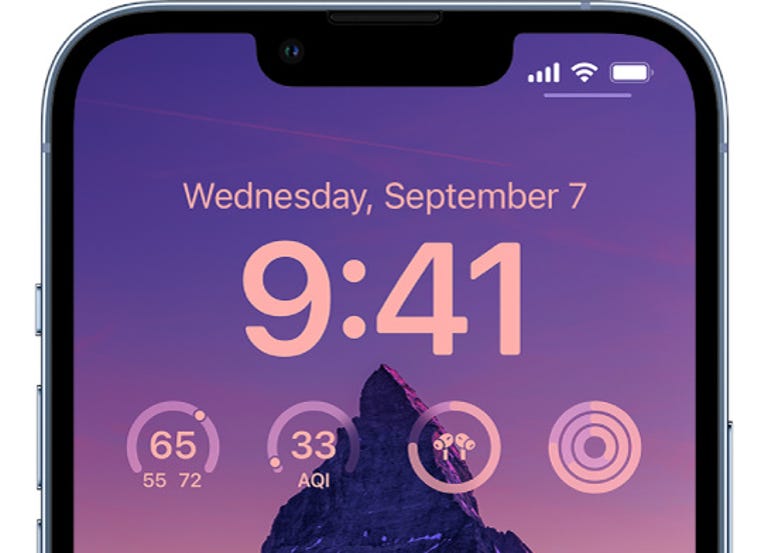
There are only four lock screen spaces for widgets in the current iOS.
It would also be nice if Apple added more widget spaces to the iPhone’s lock screen. With iOS 16, your iPhone has four grid spaces for widgets, and some widgets, like the Weather widget, take up two of those. It would be great if iOS 17 gave you at least four more grid spaces for widgets, giving you more ways to access your favorite apps.
AI-generated wallpapers
Android 14 will use artificial intelligence to let users create custom wallpapers. People will prompt their phone, which will use AI to generate a few wallpaper options. It would be great to see Apple roll out AI-generated wallpapers in iOS 17, but I’m not getting my hopes up.
While other companies have begun developing their own AI tools, Apple hasn’t made any public announcements about developing, or partnering with another company to produce, such tools.
«I do think it’s very important to be deliberate and thoughtful in how you approach these things,» Apple’s CEO Tim Cook said when asked about generative AI on the company’s earnings call.
It’s possible Apple will introduce more AI tools and functions in iOS 17, like AI-generated wallpapers, but I wouldn’t expect it. I’d bet Apple will integrate AI tools into functions most people already use, like Siri, first.
More emoji wallpaper customization options
Google announced at its I/O 2023 event that certain Pixel phones will let you create custom wallpapers using emojis, but this isn’t exclusive to Android 14. Users will be able to choose up to 14 emoji, the color of the background and the layout the emoji are set in. But Apple already brought this feature to iPhones.
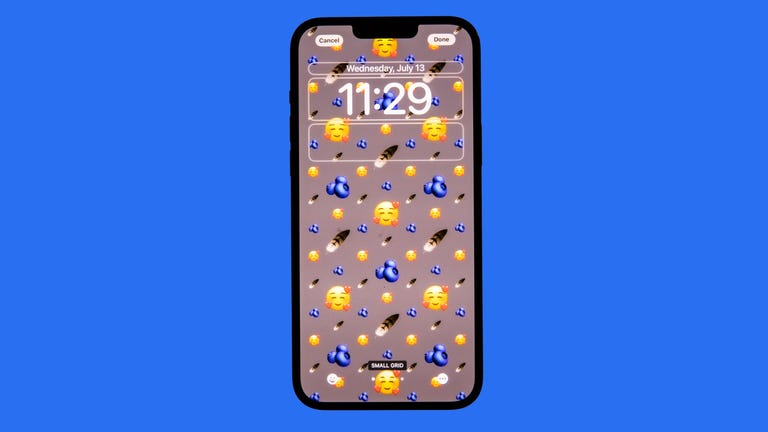
Emoji wallpapers are already available on iPhones.
To create a custom emoji wallpaper on your iPhone, go to Settings > Wallpaper > + Add New Wallpaper, and under the Emoji section are some premade emoji wallpapers. Tap any of these and you can edit what emoji are used, the layout and the color of the background. However, you can select only up to six emoji.
It would be fun if Apple allowed you to use more emoji and gave you more than six layout options in iOS 17 to further customize these wallpapers.
Cinematic wallpaper
Also not exclusive to Android 14, certain Pixel phones will let Android users create cinematic wallpapers. This feature will allow people to take a photo and give certain elements of the photo a depth effect. Once you’ve applied the effect, you can shift your Android device around and the wallpaper elements will shift around as well, making your wallpaper look three dimensional.
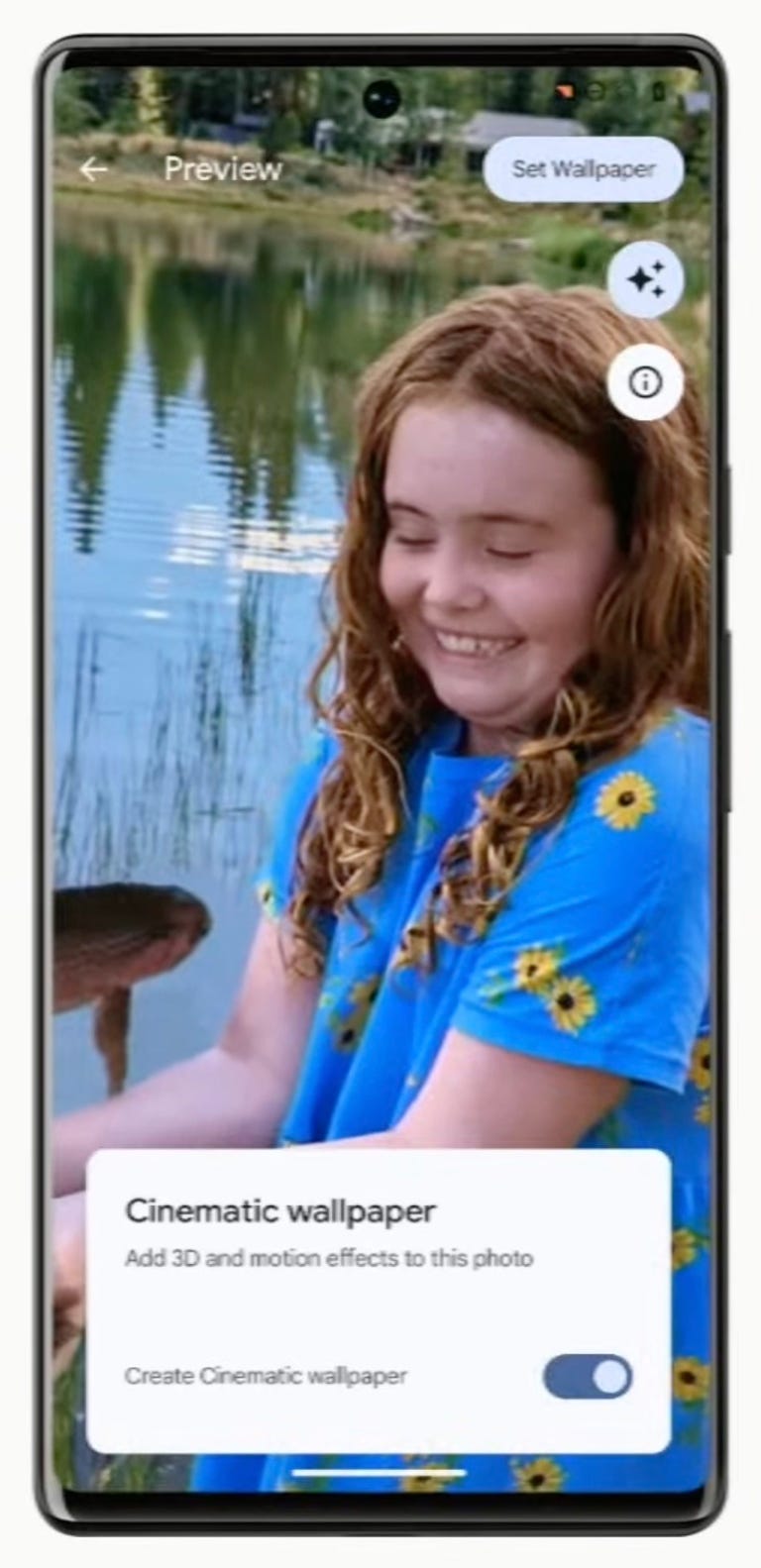
Cinematic wallpapers on Pixel devices will give certain wallpapers a three-dimensional look.
Apple introduced a similar lock screen feature in iOS 7, and this feature morphed into Perspective Zoom in some iOS 16 betas. However, the feature is no longer available in recent iOS 16 updates. Apple does let you apply a depth effect to your lock screen, but that just places your clock behind certain wallpaper elements. Enabling this also disables your lock screen widgets.
Cinematic wallpapers on your iPhone would be a nice touch to include in iOS 17, and they’d make some wallpapers on your home and lock screen really stand out. And if Apple doesn’t allow cinematic wallpapers in iOS 17, it would be great if the company at least allowed widgets to work on your lock screen when your depth effect was turned on.
For more on Apple’s mobile software, check out what CNET’s Patrick Holland hopes is included in iOS 17, what could be coming to your iPhone in iOS 16.6 and what new features you get in iOS 16.5.
Technologies
Amazon’s Alexa Plus Confounds Chris Hemsworth in Super Bowl Ad as the AI Tool Launches
Alexa Plus is aiming higher with a new superhero Super Bowl spot and a US-wide launch, including a free version for any app user.

The Alexa Plus AI has been in early access for over a year, but this week all that changes, starting with a Thursday preview at Amazon’s upcoming Super Bowl ad featuring Chris Hemsworth. Let’s look at how our phones and smart speakers are getting this smart voice assistant upgrade.
I’ve been reviewing beta Alexa Plus over the past year and found the AI upgrade to be highly conversational and more capable than the old Alexa, bringing new ties to third-party apps like Uber and Ticketmaster. Starting on Tuesday, Amazon has completed its rollout and made Alexa Plus available to anyone who wants to try it in the US.
It’s no wonder Hemsworth got worried at just how responsive the voice assistant could be. The rogue AI scenarios in the Super Bowl ad playfully acknowledge people’s fears over inviting generative artificial intelligence into their private lives as the Australian actor gets hacked by a garage door, drowned in his pool and mauled by an Alexa-ordered bear.
Amazon makes it clear that no damage was ultimately done.
«By casting Chris Hemsworth, the last guy on the planet you’d expect to be scared of anything, we were able to lean into the conversation and put people at ease through humor,» said Jo Shoesmith, Amazon’s global chief creative officer.
Alexa Plus arrives with a free version and more
So, what does this new Alexa Plus expansion — available now — include? The most interesting part is several tiers of the AI’s service, starting with a free version that anyone can use as long as they have the Alexa app downloaded or visit the web portal Alexa.com (which we’ve also tried).
You won’t get any advanced Amazon Echo capabilities that way, but you will be able to test out Alexa’s conversational AI and see how similar it is to talking to a human. Alexa Plus errs on the side of chatty, but its ability to summarize answers, stop in mid-conversation and answer follow-up questions is welcome. As I’ve said before, it feels like what voice assistants were always supposed to be like.
«Alexa Plus is built to make customers’ lives meaningfully easier — and that starts with conversation. Because Alexa Plus lives in the middle of everyday life, it has to be natural and trustworthy,» Panos Panay, senior vice president at Amazon Devices & Services, tells CNET. «The Super Bowl is the perfect moment to introduce this evolution at scale.»
Two other Alexa AI tiers exist. The first comes when you subscribe to Amazon Prime for $15 per month. That unlocks not only Prime’s own content but also all Alexa Plus capabilities across all compatible devices. This includes Echo smart speakers and AI video summaries for Ring security cameras, among other tricks. You can try telling your Echo device to «Upgrade to Alexa Plus» to get started.
The final option is paying $20 per month to unlock all Alexa Plus capabilities across all devices, independent of an Amazon Prime subscription. Alexa won’t be able to interact with Prime content like videos or Amazon Music, but it can connect with everything else the AI upgrade offers. Since you need an Amazon account either way, this tier is for specific people who want to avoid Prime content.
Is the new Alexa AI worth your time?
If you’re wondering whether Alexa Plus is worth it compared to alternatives like Gemini for Home or whatever Apple is cooking up with Siri, I found my experience with the voice assistant to be the most positive I’ve had overall. Sometimes a little too positive — as we’ve seen with chatbots, Alexa Plus can be very willing to agree with you and promise to do anything, even if it can’t.
Also, if you use an Echo, it will send your voice recordings to Amazon for automatic analysis; there’s no getting around that privacy concession if you want Alexa on a smart device.
Those issues aside, Alexa Plus as part of Amazon Prime for $15 is an excellent deal, especially if you already use Prime for ordering, catching up on Fallout, etc. If you’re not sure how talking to the new and vivacious Alexa feels like, all you need is an Amazon account to try it out online.
Technologies
Snag a Rare Discount on the Amazing Beats Powerbeats Fit Earbuds With This Limited-Time Deal
Get yourself these amazing earbuds while they’re back down to their lowest-ever price.

The 2025 Beats Powerbeats Fit is on our list of the best workout earbuds and headphones, and right now you can get yourself these powerful Beats Powerbeats Fit earbuds for $180. That’s a $20 discount and brings them back down to their all-time low price. They’re worth it at full price, so if you want them, now’s a fantastic chance to pick them up for less. The only issue is that Amazon’s limited-time deals don’t last long, so you’ll need to be quick if you want to secure them at this price.
The upgrades on the Powerbeats Fit are mostly cosmetic and concern ear fit, so they’re a better fit for people who don’t currently own another pair of Beats in the Powerbeats family. In his review, CNET’s audio expert David Carnoy said, «The design upgrades to the wingtips and case do improve the buds, which remain quite appealing for those looking for secure-fitting earbuds for workouts and everyday use.»
The Powerbeats Fit includes ear tips in four sizes, including extra small, so that everyone can find a secure fit. They can last up to 30 hours when carrying around their charging case, and they offer active noise cancellation that comes in handy when you’re getting your reps in. Both the earbuds and the case are IPX4 water and sweatproof, which means your workout won’t get in the way of your music or audiobooks.
Need more ideas for your next pair of earbuds upgrade? We’ve got a list of the best wireless earbuds you can check out so you can make the most of your holiday cash gifts.
HEADPHONE DEALS OF THE WEEK
-
$248 (save $152)
-
$170 (save $181)
-
$398 (save $62)
-
$200 (save $250)
Why this deal matters
Like other audio gear from Beats, the Powerbeats Fit earbuds offer excellent sound, a comfortable fit and decent noise cancellation. However, they usually command a price of $200. This modest Amazon discount of $20 brings them down to $180 for a limited time, their best price to date across several colors.
Technologies
Today’s NYT Connections Hints, Answers and Help for Feb. 5, #970
Here are some hints and the answers for the NYT Connections puzzle for Feb. 5 #970.
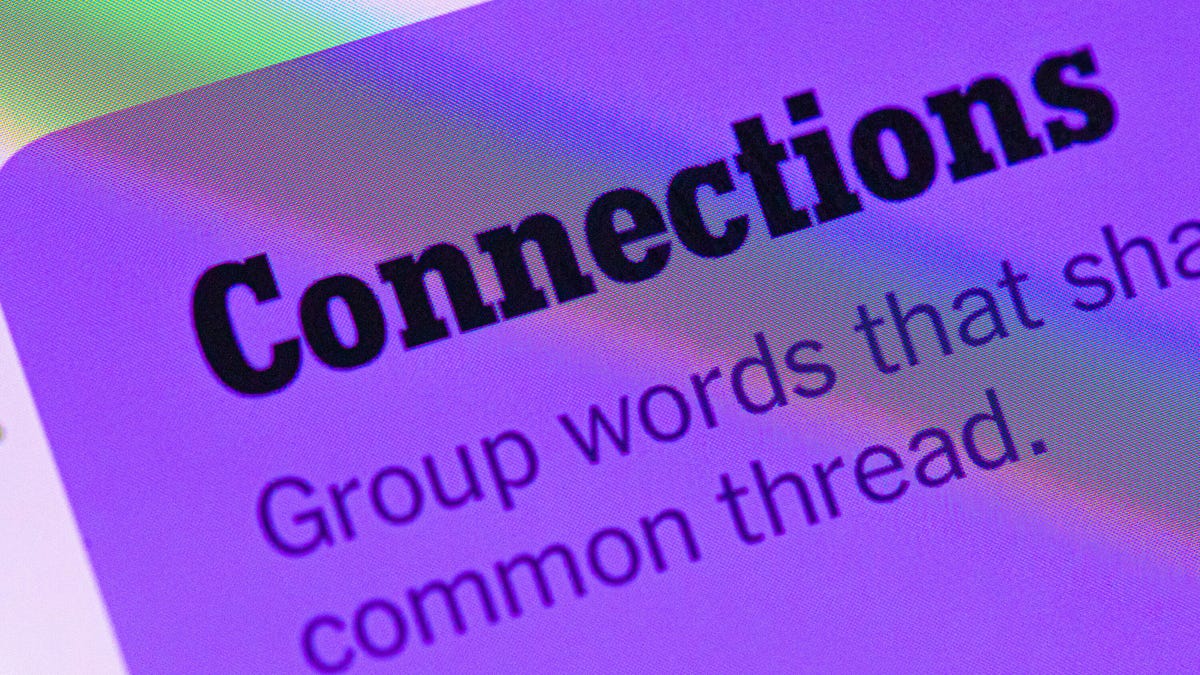
Looking for the most recent Connections answers? Click here for today’s Connections hints, as well as our daily answers and hints for The New York Times Mini Crossword, Wordle, Connections: Sports Edition and Strands puzzles.
Today’s NYT Connections puzzle is kind of tough. Read on for clues and today’s Connections answers.
The Times has a Connections Bot, like the one for Wordle. Go there after you play to receive a numeric score and to have the program analyze your answers. Players who are registered with the Times Games section can now nerd out by following their progress, including the number of puzzles completed, win rate, number of times they nabbed a perfect score and their win streak.
Read more: Hints, Tips and Strategies to Help You Win at NYT Connections Every Time
Hints for today’s Connections groups
Here are four hints for the groupings in today’s Connections puzzle, ranked from the easiest yellow group to the tough (and sometimes bizarre) purple group.
Yellow group hint: Star-spangled signs.
Green group hint: Smash into.
Blue group hint: Not green or red.
Purple group hint: Same surname.
Answers for today’s Connections groups
Yellow group: Cultural symbols of the US.
Green group: Collide with.
Blue group: Blue things.
Purple group: Lees of Hollywood.
Read more: Wordle Cheat Sheet: Here Are the Most Popular Letters Used in English Words
What are today’s Connections answers?
The yellow words in today’s Connections
The theme is cultural symbols of the US. The four answers are American flag, apple pie, bald eagle and baseball.
The green words in today’s Connections
The theme is collide with. The four answers are bump, butt, knock and ram.
The blue words in today’s Connections
The theme is blue things. The four answers are jeans, lapis lazuli, ocean and sky.
The purple words in today’s Connections
The theme is Lees of Hollywood. The four answers are Ang, Bruce, Christopher and Spike.
-

 Technologies3 года ago
Technologies3 года agoTech Companies Need to Be Held Accountable for Security, Experts Say
-

 Technologies3 года ago
Technologies3 года agoBest Handheld Game Console in 2023
-

 Technologies3 года ago
Technologies3 года agoTighten Up Your VR Game With the Best Head Straps for Quest 2
-

 Technologies4 года ago
Technologies4 года agoBlack Friday 2021: The best deals on TVs, headphones, kitchenware, and more
-

 Technologies5 лет ago
Technologies5 лет agoGoogle to require vaccinations as Silicon Valley rethinks return-to-office policies
-

 Technologies5 лет ago
Technologies5 лет agoVerum, Wickr and Threema: next generation secured messengers
-

 Technologies4 года ago
Technologies4 года agoOlivia Harlan Dekker for Verum Messenger
-

 Technologies4 года ago
Technologies4 года agoiPhone 13 event: How to watch Apple’s big announcement tomorrow
